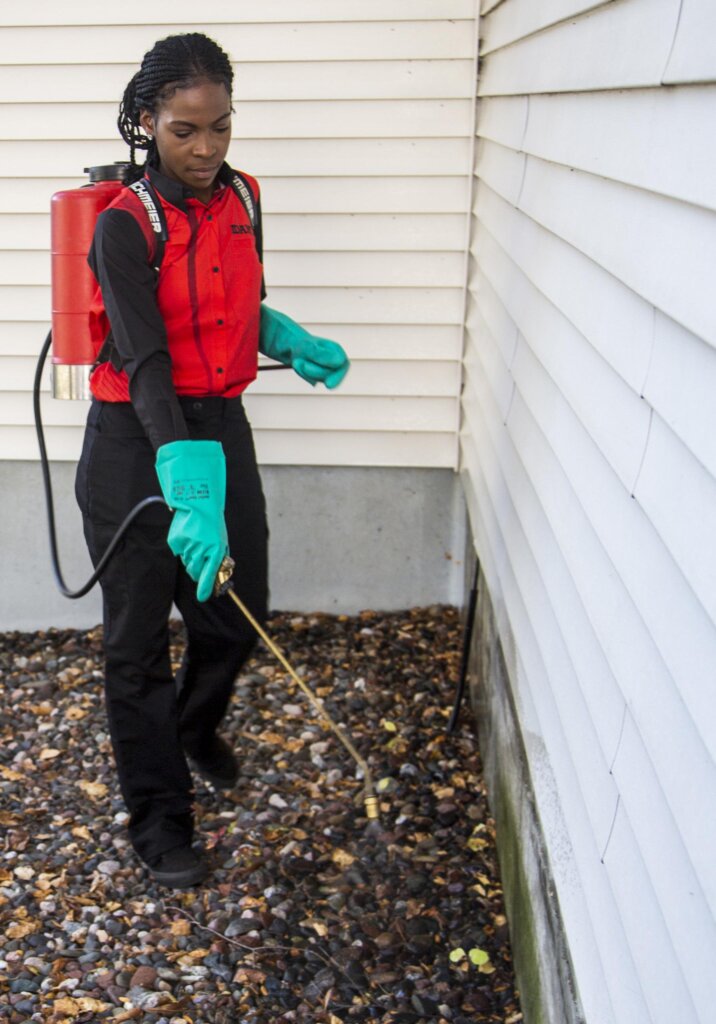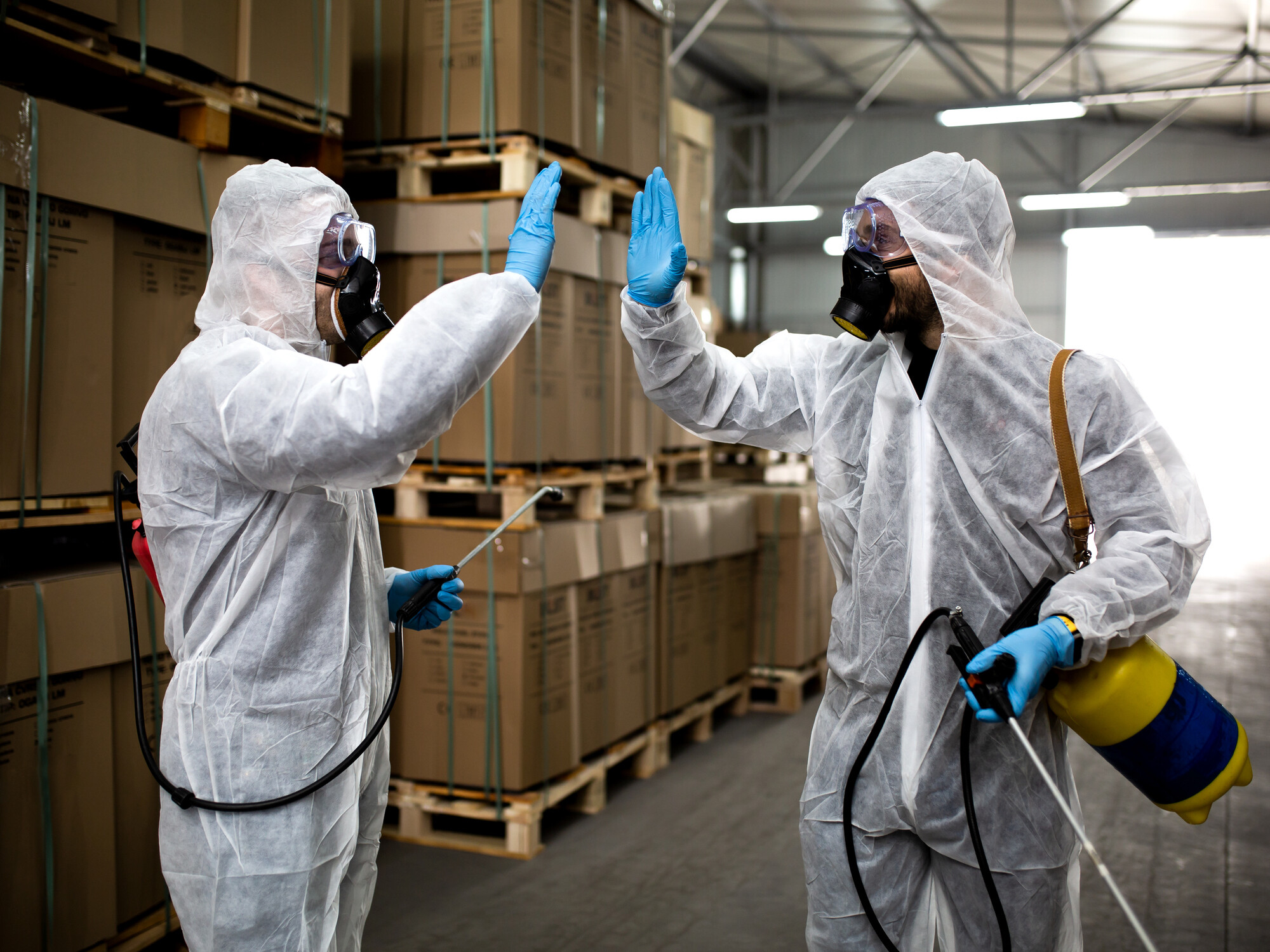Professional Chicago Wasp Nest Removal: Vital Services for a Pest-Free Property
Checking Out Numerous Approaches and Strategies for Comprehensive Parasite Control in Residential Spaces
The landscape of pest control in residential spaces has evolved considerably, requiring a thorough understanding of various approaches that can be employed for effective monitoring. Conventional chemical therapies, while reliable, are significantly being matched by green options and Integrated Pest Monitoring (IPM) approaches. House owners need to consider preventative measures, such as normal tracking and accurate parasite identification, to maintain a healthy and balanced atmosphere. The actual difficulty lies in striking an equilibrium between efficiency and safety-- an expedition that exposes the nuances of each strategy and its implications for sustainable living.
Understanding Bug Control Basics
Efficient bug control is important for preserving a healthy and balanced and risk-free living setting. Comprehending the essentials of pest control involves recognizing the sorts of insects that typically get into household spaces, the possible risks they position, and the value of safety nets. Usual home insects include rodents, bugs, and other unwanted creatures that can jeopardize hygiene, damage home, and activate health and wellness concerns.
An essential very first step in bug control is recognizing the details parasites existing. This can entail inspecting areas such as basements, attics, and kitchens, where insects are likely to thrive. As soon as identified, it is important to comprehend their practices, breeding cycles, and preferred environments, which can notify suitable control methods.
Safety nets are basic to efficient pest monitoring. These consist of securing entry factors, keeping tidiness, and reducing mess to get rid of hiding areas. Additionally, correct food storage space and waste management can considerably lower the attraction of a home for insects.

Traditional Chemical Treatments
Amongst the various pest control techniques, standard chemical therapies have actually long been used to address invasions in property spaces. These treatments typically involve the application of chemical pesticides designed to eliminate insects such as bugs, rodents, and other unwanted organisms. The effectiveness of these chemicals can vary, depending on the kind of parasite, the formulation of the pesticide, and the method of application.
Usual courses of typical chemical therapies consist of insecticides, fungicides, rodenticides, and herbicides, each tailored to fight particular pests. Pesticides, for instance, may target ants, cockroaches, or termites, while rodenticides are especially developed to control rodent populaces. These chemicals are usually available in various types, consisting of sprays, baits, and granules, permitting house owners adaptability in application.
In spite of their efficiency, traditional chemical therapies raise problems pertaining to prospective poisoning to people, animals, and beneficial microorganisms in the environment. As a result, it is vital for property owners to carefully comply with application standards and security preventative measures to minimize threats. Integrated Pest Administration (IPM) strategies can match these therapies, ensuring a much more all natural approach to pest control while optimizing efficiency and security in property setups.
Eco-Friendly Insect Control Options
Green pest control choices are obtaining appeal as homeowners seek much safer and extra lasting alternatives to conventional chemical therapies. These approaches prioritize the health and wellness of both homeowners and the environment, reducing the effect of parasite control techniques.
One widely adopted environment-friendly approach is making use of all-natural repellents stemmed from essential oils, such as peppermint and citronella. These oils not just discourage insects however likewise give pleasant aromas for indoor spaces. Diatomaceous planet, a powder made from fossilized algae, acts as a natural insecticide by harming the exoskeletons of pests upon contact, leading to dehydration.
Another reliable strategy includes promoting biodiversity in gardens and yards. Presenting beneficial insects, such as ladybugs and lacewings, can naturally control pest populaces (pest control chicago llc). In addition, using traps made from biodegradable materials can aid catch and remove pests without triggering harm to the ecosystem
Normal upkeep, such as sealing access points and appropriate sanitation, more improves the effectiveness of environment-friendly insect control. Homeowners can take aggressive procedures to avoid problems, making sure a more lasting living environment while properly handling pest-related concerns.
Integrated Bug Management Methods
Implementing incorporated insect monitoring (IPM) techniques provides a comprehensive technique to pest control that emphasizes avoidance and long-term services. IPM incorporates multiple techniques, concentrating on comprehending parasite behaviors, life process, and ecological characteristics to minimize bug populations properly. This complex method prioritizes non-chemical approaches, such as biological control, environment adjustment, and cultural methods, to minimize dependence on chemicals.
A fundamental facet of IPM is keeping an eye on and rat removal chicago Illinois recognizing pests precisely. When intervention is required, this entails routine assessments and the facility of activity limits to determine. By understanding the particular bugs influencing residential environments, targeted interventions can be utilized, minimizing the probability of unneeded chemical applications.
Another important component of IPM is educating property owners regarding the importance of hygiene and upkeep practices. By cultivating an atmosphere that dissuades insect problems-- such as securing access points and managing dampness-- locals can substantially reduce the risk of insect troubles. In addition, when chemical controls are deemed needed, IPM supporters for using the least hazardous options to decrease ecological impact. With these methods, IPM not just addresses existing insect issues but likewise cultivates sustainable techniques that advertise lasting bug administration success.
Preventative Measures for Residence
To fend off prospective insect problems, house owners should embrace an aggressive approach that highlights preventative procedures. This begins with preserving a clean and orderly living room, as mess and food debris bring in bugs. Preventative pest control services Chicago. On a regular basis vacuuming, sweeping, and cleaning down surface areas can dramatically lower the risk of infestations
Furthermore, sealing entry factors is crucial. Home owners ought to check home windows, doors, and foundation fractures for spaces that could enable bugs accessibility to the home. Using caulk and climate stripping can successfully block these entrances.
Appropriate food storage space is another crucial measure. Saving food in impermeable containers and promptly cleansing up spills or crumbs helps hinder rats and insects.
Additionally, handling exterior environments can prevent bugs from encroaching on domestic rooms. Homeowners ought to make sure that drainage systems are working well, and landscaping is kept clean. Cutting trees and shrubs away from the residence and eliminating standing water can further reduce parasite environments.

Verdict
In conclusion, reliable insect control in property spaces demands a complex method that integrates traditional chemical treatments with environment-friendly practices and Integrated Insect Monitoring strategies. By prioritizing preventative procedures, such as maintaining sanitation and securing entrance points, homeowners can dramatically reduce bug events.
Understanding the fundamentals of parasite control involves recognizing the kinds of parasites that generally get into domestic spaces, the possible dangers they posture, and the value of preventive steps.An essential first action in parasite control is determining the particular pests present. Integrated Pest Management (IPM) techniques can match these treatments, ensuring a more holistic technique to pest control while maximizing efficiency and safety in domestic settings.
Implementing integrated pest management (IPM) approaches provides an extensive method to pest control that emphasizes prevention and long-lasting remedies.In verdict, efficient insect control in property rooms requires a multifaceted strategy that integrates standard chemical treatments with environmentally friendly techniques and Integrated Pest Management techniques.